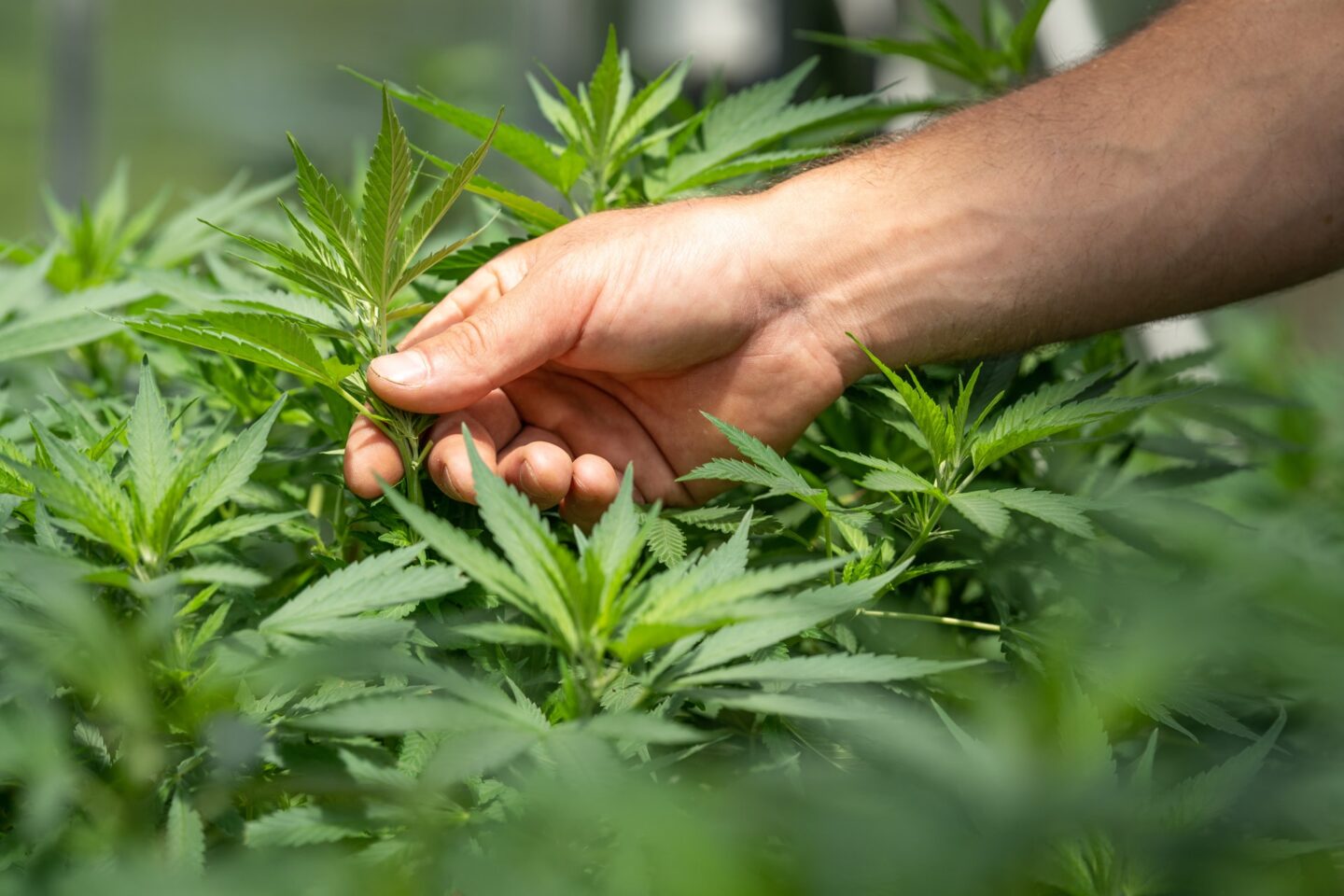
Cannabidiol (CBD) is one of many cannabinoids found in the cannabis plant. Cannabinoids are compounds that interact with our body’s endocannabinoid system. CBD is a non-intoxicating cannabinoid, meaning it won’t make you feel “high.” Cannabidiol can be sourced from both marijuana and hemp plants. CBD oil is made by extracting CBD from either a hemp or marijuana plant and then diluting it with a carrier oil, such as MCT oil or hemp seed oil.
CBD has been shown to offer a wide range of potential health benefits, including reducing inflammation, relieving pain, and improving mental health. In this article, we’ll look at 10 scientific health benefits of cannabidiol.
1. Cannabidiol May Reduce Inflammation
CBD has been shown to help reduce inflammation in a number of studies. A 2012 study found that CBD may help reduce inflammatory arthritis in rats by affecting the body’s immune response. The researchers concluded that CBD could be a potential treatment for reducing inflammation and pain in humans.
2. Cannabidiol May Reduce Anxiety and Depression
CBD has been shown to have anti-anxiety and antidepressant effects in a number of studies. A 2011 study found that CBD significantly reduced anxiety and depression in people with social anxiety disorder (SAD). CBD has also been shown to help reduce symptoms of post-traumatic stress disorder (PTSD) and improve sleep in people with PTSD.
3. Cannabidiol May Alleviate Cancer-Related Symptoms
CBD has been shown to help relieve cancer-related symptoms in a number of studies. A 2012 study found that CBD may help reduce nausea and vomiting in cancer patients. CBD has also been shown to help reduce pain and improve sleep in cancer patients.
4. Cannabidiol May Benefit Heart Health

CBD has been shown to offer potential heart health benefits in a number of studies. A 2013 study found that CBD may help protect against the damaging effects of free radicals. CBD has also been shown to lower blood pressure, which can be a major cause of heart disease.
5. Cannabidiol May Help Treat Neurological Disorders
CBD has been shown to offer potential benefits for a number of neurological disorders. A 2014 study found that CBD may help protect the brain from damage caused by Alzheimer’s disease. CBD has also been shown to reduce seizures in people with epilepsy and improve motor skills in people with Parkinson’s disease.
6. Cannabidiol May Help Pain Relief
CBD has pain-relieving properties in a number of studies. A 2012 study found that CBD may help reduce chronic inflammation and neuropathic pain, two types of chronic pain. CBD has also been shown to be effective in treating cancer-related pain and painful symptoms of multiple sclerosis.
7. Cannabidiol May Benefit Skin Health
CBD has been shown to have anti-inflammatory and anti-acne effects in a number of studies. A 2014 study found that CBD may help reduce the production of sebum, an oily substance that can cause acne. CBD has also been shown to have anti-aging effects by reducing the appearance of wrinkles and preventing cell death.
8. Cannabidiol May Benefit Bone Health

CBD has been shown to have anti-inflammatory and bone-stimulating effects in a number of studies. A 2013 study found that CBD may help protect against the deterioration of bones due to osteoporosis. CBD has also been shown to promote the growth of new bone cells, which can lead to increased bone density.
9. Cannabidiol May Benefit Mental Health
CBD has been shown to have anti-anxiety and antidepressant effects in a number of studies. A 2011 study found that CBD significantly reduced anxiety and depression in people with social anxiety disorder (SAD). CBD has also been shown to improve symptoms of post-traumatic stress disorder (PTSD) and schizophrenia.
10. Cannabidiol May Help Treat Substance Abuse
CBD has been shown to help reduce cravings and withdrawal symptoms in people with substance abuse disorders. A 2015 study found that CBD may help reduce cravings and anxiety in people with heroin addiction. CBD has also been shown to reduce the risk of relapse in people with alcohol dependence.
11. Cannabidiol May Have Anti-cancer Effects
CBD has been shown to have anti-cancer effects in a number of studies. A 2012 study found that CBD may help protect against the damaging effects of free radicals. CBD has also been shown to induce programmed cell death in cancer cells, which can lead to tumor shrinkage. CBD is also being studied for its potential to inhibit the growth of new blood vessels in tumors.
Can We Make CBD Oil at Home?
The short answer is yes, you can make CBD oil at home. However, it’s important to note that the process is not as simple as just extracting CBD from cannabis and adding it to oil. The Cannabidiol needs to be heated in order to convert it into its oil form, and this process can be dangerous if not done correctly.
If you’re interested in making CBD oil at home, we recommend that you consult with a professional who has experience with the extraction process. Cannabidiol is a potent compound and should be treated with caution. Making your own CBD oil can be a fun and rewarding project, but it’s important to do it safely.
What are some health risks of CBD Oil?
CBD oil is generally considered to be safe. However, there are a few potential side effects that you should be aware of. These include:
– Dry mouth: CBD can cause dryness of the mouth. This is usually not a serious problem, but it can be uncomfortable. To avoid this, make sure to drink plenty of water while taking CBD oil.
– Drowsiness: CBD can cause drowsiness in some people. If you experience this side effect, it’s best to take CBD oil at night before bed.
– Low blood pressure: In rare cases, CBD can cause a drop in blood pressure. This can lead to lightheadedness and dizziness. If you experience this side effect, it’s best to sit or lie down until the feeling passes.
– Liver damage: CBD is metabolized by the liver. In rare cases, this can lead to liver damage. If you experience symptoms such as yellowing of the skin or eyes, dark urine, or abdominal pain, stop taking CBD oil and consult a doctor immediately.
CBD oil is generally safe, but it’s important to be aware of the potential side effects. If you experience any serious problems after taking CBD oil, make sure to see a doctor right away.
Conclusion
Cannabidiol (CBD) is a potent compound that offers a variety of health benefits. CBD has been shown to help reduce pain, improve sleep, and protect against the damaging effects of free radicals. CBD is also being studied for its potential to treat neurological disorders, substance abuse, and cancer. While you can make CBD oil at home, we recommend consulting with a professional to do it safely.


